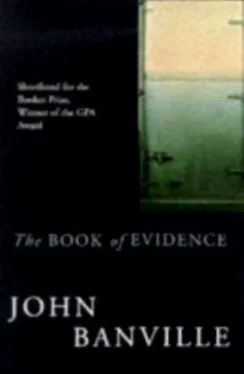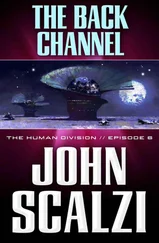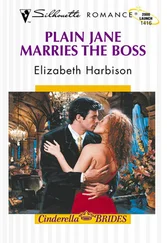I took a bus into the city. It was a single-decker, on an infrequent route, coming from far out. The people on it all seemed to know each other. At each stop when someone got on there was much banter and friendly raillery. An old chap with a cap and a crutch was the self-appointed host of this little travelling club. He sat near the front, behind the driver, his stiff left leg stuck out into the aisle, and greeted each newcomer with a start of feigned surprise and a rattle of his crutch. Oh! watch out! here he comes! he would say, mugging at the rest of us over his shoulder, as if to alert us to the arrival of some terrible character, when what had appeared up the step was a ferret-faced young man with a greasy season-ticket protruding from his fist like a discoloured tongue. Girls provoked gallantries, which made them smirk, while for the housewives off to town to do their shopping there were winks and playful references to that stiff limb of his. Now and again he would let a glance slide over me, quick, tentative, a little queasy, like that of an old trouper spotting a creditor in the front row. It struck me, indeed, that there was something faintly theatrical about the whole thing. The rest of the passengers had the self-conscious nonchalance of a first-night audience.
They too had a part of sorts to play. Behind the chatter and the jokes and the easy familiarity they seemed worried, their eyes were full of uncertainty and tiredness, as if they had got the text by heart but still were not sure of their cues. I studied them with deep interest. I felt I had discovered something significant, though what it was, or what it signified, I was not sure. And I, what was I among them? A stage-hand, perhaps, standing in the wings envying the players.
When we reached town I could not decide where to get off, one place seemed as good as another. I must say something about the practicalities of my situation. I should have been shaking in fear. I had a five-pound note and some coins – mostly foreign – in my pocket, I looked, and smelled, like a tramp, and I had nowhere to go. I did not even have a credit card with which to bluff my way into a hotel. Yet I could not worry, could not make myself be concerned. I seemed to float, bemused, in a dreamy detachment, as if I had been given a great dose of local anaesthetic. Perhaps this is what it means to be in shock? No: I think it was just the certainty that at any moment a hand would grasp me by the shoulder while a terrible voice boomed out a caution. By now they would have my name, a description would be in circulation, hard-eyed men in bulging jackets would be cruising the streets on the look-out for me. That none of this was so is still a puzzle to me. The Behrenses must have known at once who it was that would take that particular picture, yet they said nothing. And what about the trail of evidence I left behind me? What about the people who saw me, the Recks, the señorita at the garage, the man in the hardware shop, that woman who looked like my mother who came upon me sitting like a loon at the traffic lights? Your lordship, I would not wish to encourage potential wrongdoers, but I must say, it is easier to get away with something, for a time at least, than is generally acknowledged. Vital days – how easily one slips into the lingo! – vital days were to pass before they even began to know who it was they were after. If I had not continued to be as rash as I was at the start, if I had stopped and taken stock, and considered carefully, I believe I might not be here now, but in some sunnier clime, nursing my guilt under an open sky. But I did not stop, did not consider. I got off the bus and set off at once in the direction in which I happened to be facing, since my fate, I was convinced, awaited me all around, in the open arms of the law. Capture! I nursed the word in my heart. It comforted me. It was the promise of rest. I dodged along through the crowds like a drunk, surprised that they did not part before me in horror. All round me was an inferno of haste and noise. A gang of men stripped to the waist was gouging a hole in the road with pneumatic drills. The traffic snarled and bellowed, sunlight flashing like knives off the windshields and the throbbing roofs of cars. The air was a poisonous hot blue haze. I had become unused to cities. Yet I was aware that even as I struggled here I was simultaneously travelling smoothly forward in time, it seemed a kind of swimming without effort. Time, I thought grimly, time will save me. Here is Trinity, the Bank. Fox's, where my father used to come on an annual pilgrimage, with great ceremony, to buy his Christmas cigars. My world, and I an outcast in it. I felt a deep, dispassionate pity for myself, as for some poor lost wandering creature. The sun shone mercilessly, a fat eye stuck in the haze above the streets. I bought a bar of chocolate and devoured it, walking along. I bought an early edition of an evening paper, too, but there was nothing in it. I dropped it on the ground and shambled on. An urchin picked it up – Eh, mister! – and ran after me with it. I thanked him, and he grinned, and I almost burst into tears. I stood there, stalled, and looked about me blearily, a baffled hulk. People crowded past me, all faces and elbows. That was my lowest point, I think, that moment of helplessness and dull panic. I decided to give myself up. Why had I not thought of it before? The prospect was wonderfully seductive. I imagined myself being lifted tenderly and carried through a succession of cool white rooms to a place of calm and silence, of luxurious surrender.
In the end, instead, I went to Wally's pub.
It was shut. I did not understand. At first I thought wildly that it must be something to do with me, that they had found out I had been there and had closed it down. I pushed and pushed at the door, and tried to see through the bottle-glass of the windows, but all was dark inside. I stepped back. Next door there was a tiny fashion boutique where a pair of pale girls, frail and blank as flowers, stood motionless, staring at nothing, as if they were themselves a part of the display. When I spoke they turned their soot-rimmed eyes on me without interest. Holy hour, one said, and the other giggled wanly. I retreated, simpering, and went to the pub and pounded on the door with renewed force. After some time there were dragging footsteps inside and the sound of locks being undone. What do you want, Wally said crossly, blinking in the harsh sunlight slanting down from the street. He was wearing a purple silk dressing-gown and shapeless slippers. He looked me up and down with distaste, noting the stubble and the filthy pullover. I told him my car had broken down, I needed to make a phonecall. He gave a sardonic snort and said, A phonecall! as if it were the richest thing he'd heard in ages. He shrugged. It was nearly opening time anyway. I followed him inside. His calves were plump and white and hairless, I wondered where I had seen others like them recently. He switched on a pink-shaded lamp behind the bar. There's the phone, he said with a wave, pursing his lips derisively. I asked if I could have a gin first. He sniffed, his sceptic's heart gratified, and permitted himself a thin little smile. Have a smash-up, did you? he said. For a second I did not know what he was talking about. Oh, the car, I said, no, no it just – stopped. And I thought, with bleak amusement: There's the first question answered and I haven't lied. He turned away to make my drink, priest-like in his purple robe, then set it before me and propped himself on the edge of his stool with his fat arms folded. He knew I had been up to something, I could see it from the look in his eye, at once eager and disdainful, but he could not bring himself to ask. I grinned at him and drank my drink, and gleaned a grain of enjoyment from his dilemma. I said it was a good idea, wasn't it, the siesta. He raised an eyebrow. I pointed a finger at his dressing-gown. A nap, I said, in the middle of the day: good idea. He did not think that was funny. From somewhere in the shadowy reaches behind me a tousle-haired young man appeared, clad only in a drooping pair of underpants. He gave me a bored glance and asked Wally if the paper was in yet. Here, I said, take mine, go ahead. I must have been twisting it in my hands, it was rolled into a tight baton. He prised it open and read the headlines, his lips moving. Fucking bombers, he said, fucking lunatics. Wally had fixed him with a terrible glare. He threw the paper aside and wandered off, scratching his rump. I held out my glass for a refill. We still charge for drinks, you know, Wally said. We'll accept money. I gave him my last fiver. A thin blade of light had got in through a chink in a shutter somewhere and stood at a slant beside me, embedded in the floor. I watched Wally's plump back as he refilled my glass. I wondered if I might tell him what I had done. It seemed perfectly possible. Nothing, I told myself, nothing shocks Wally, after all. I could almost believe it. I imagined him looking at me with a twist of the mouth and one eyebrow arched, trying not to leer as I recounted my horrid tale. The thought of confessing gave me a little lift, it was so splendidly irresponsible. It made the whole thing seem no more than a spot of high jinks, a jape that had gone wrong. I chuckled mournfully into my glass. You look like shit, Wally said complacently. I asked for another gin, a double this time.
Читать дальше












